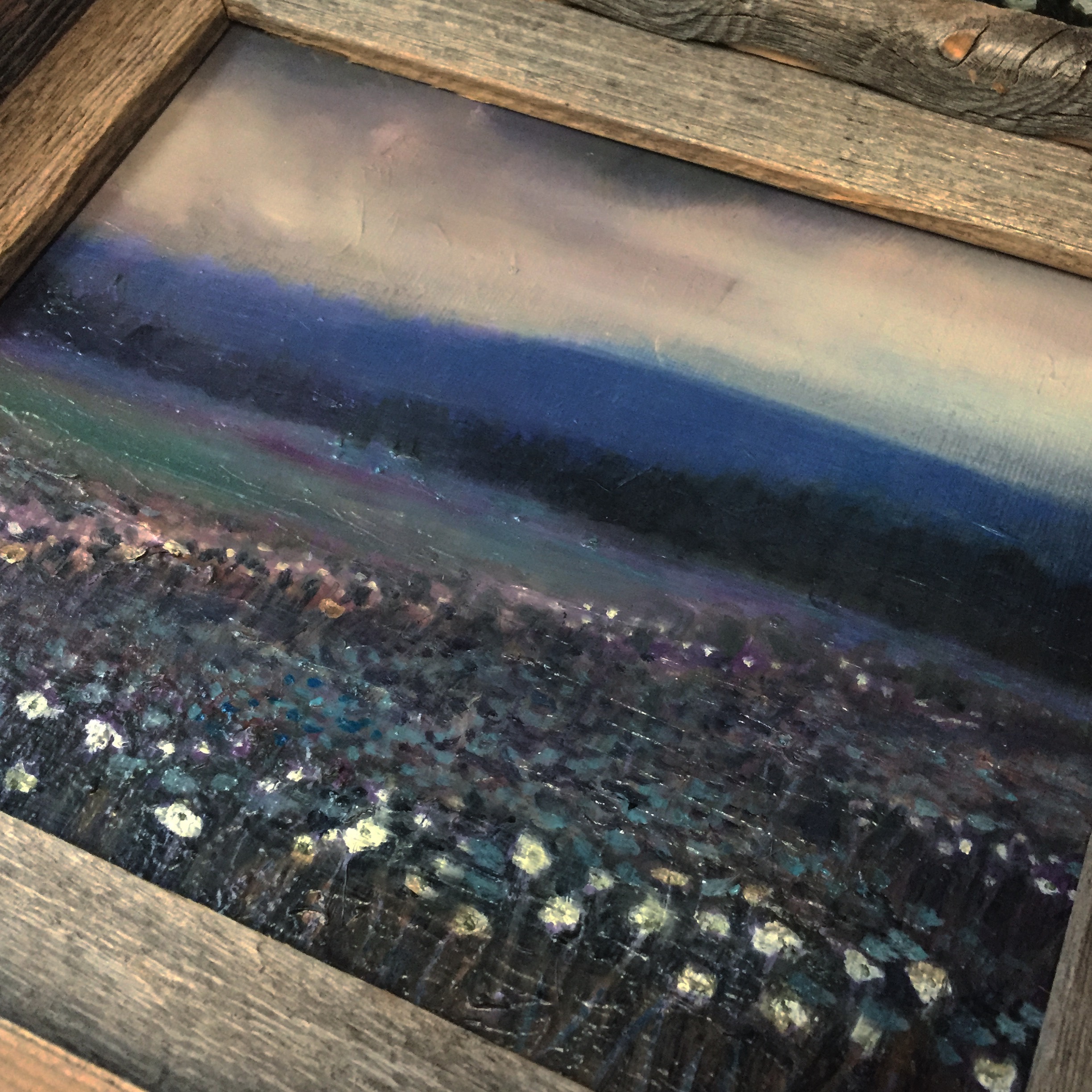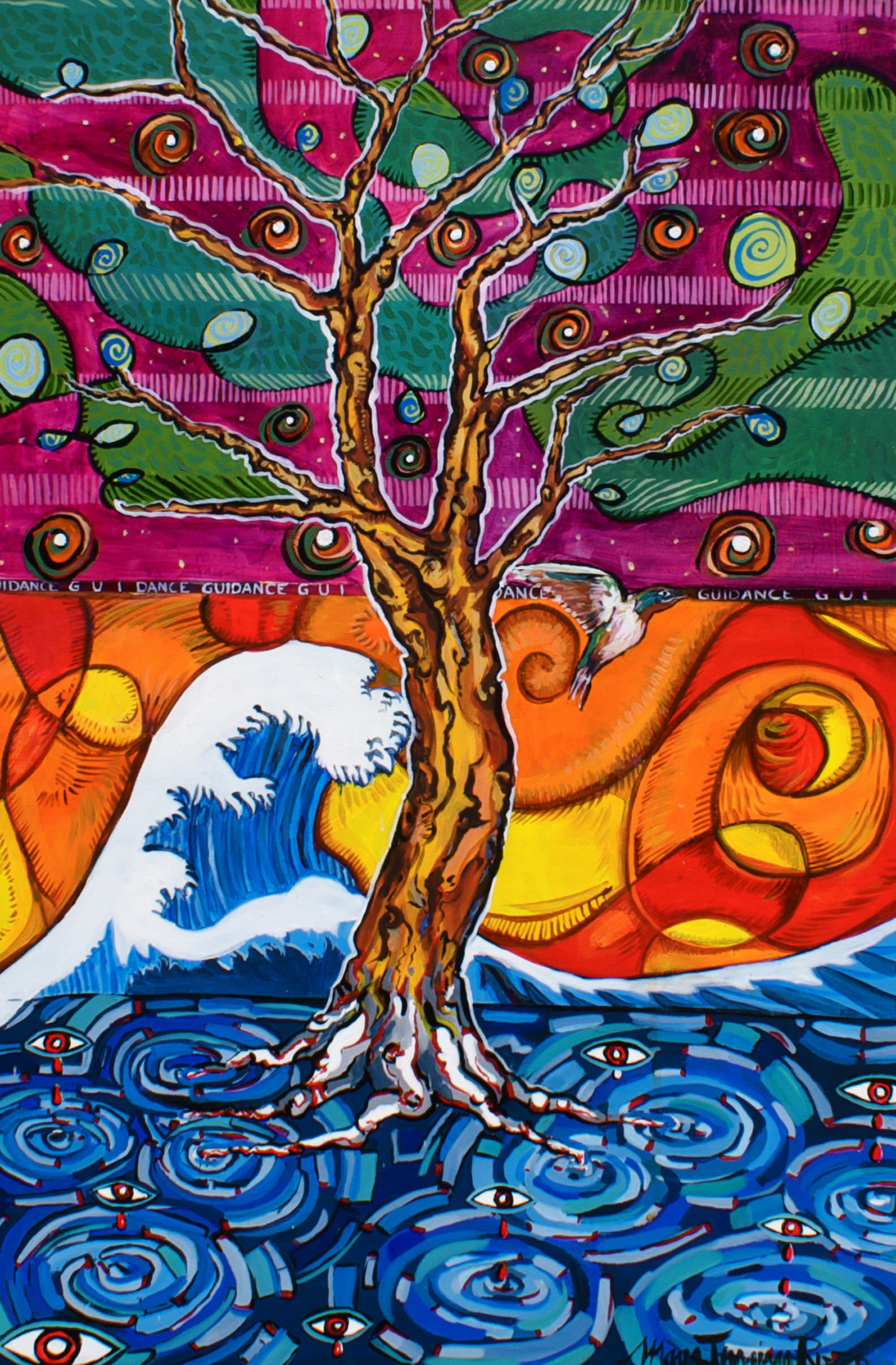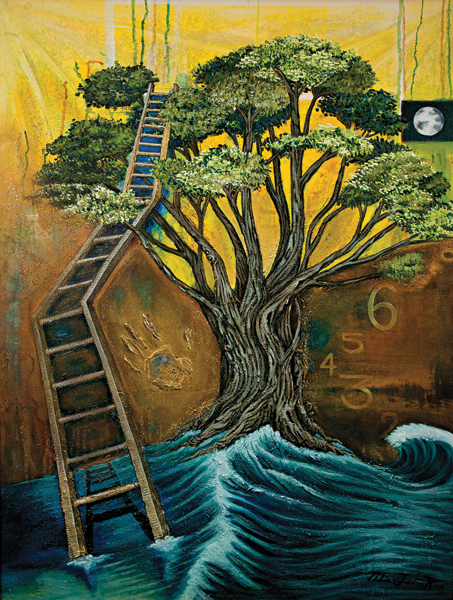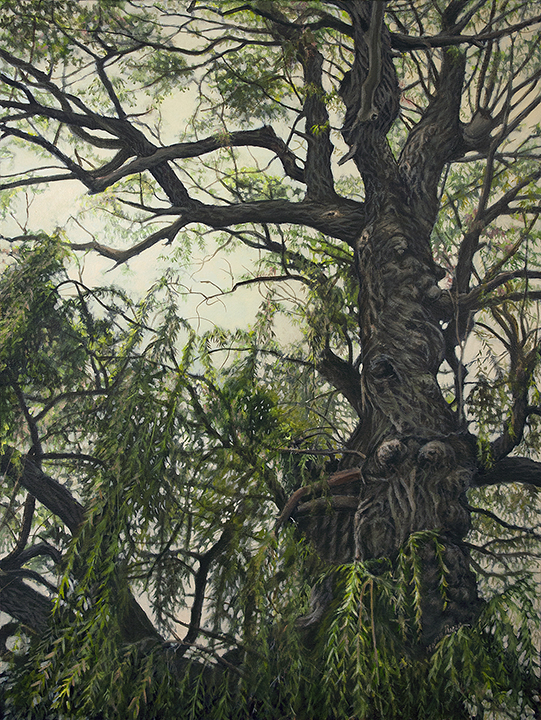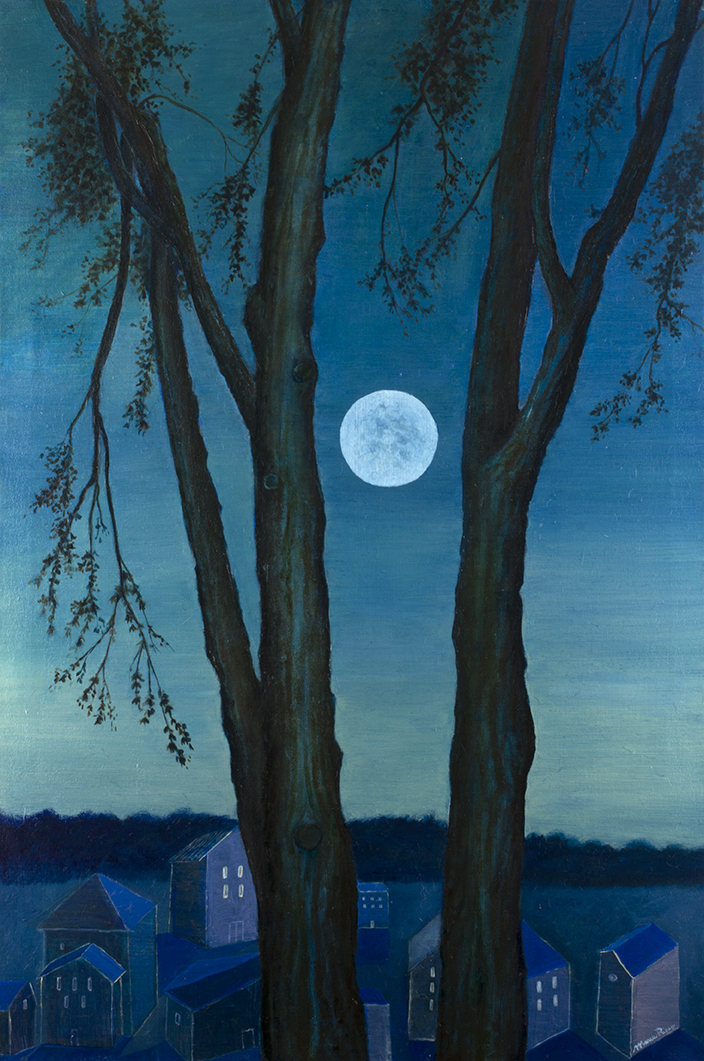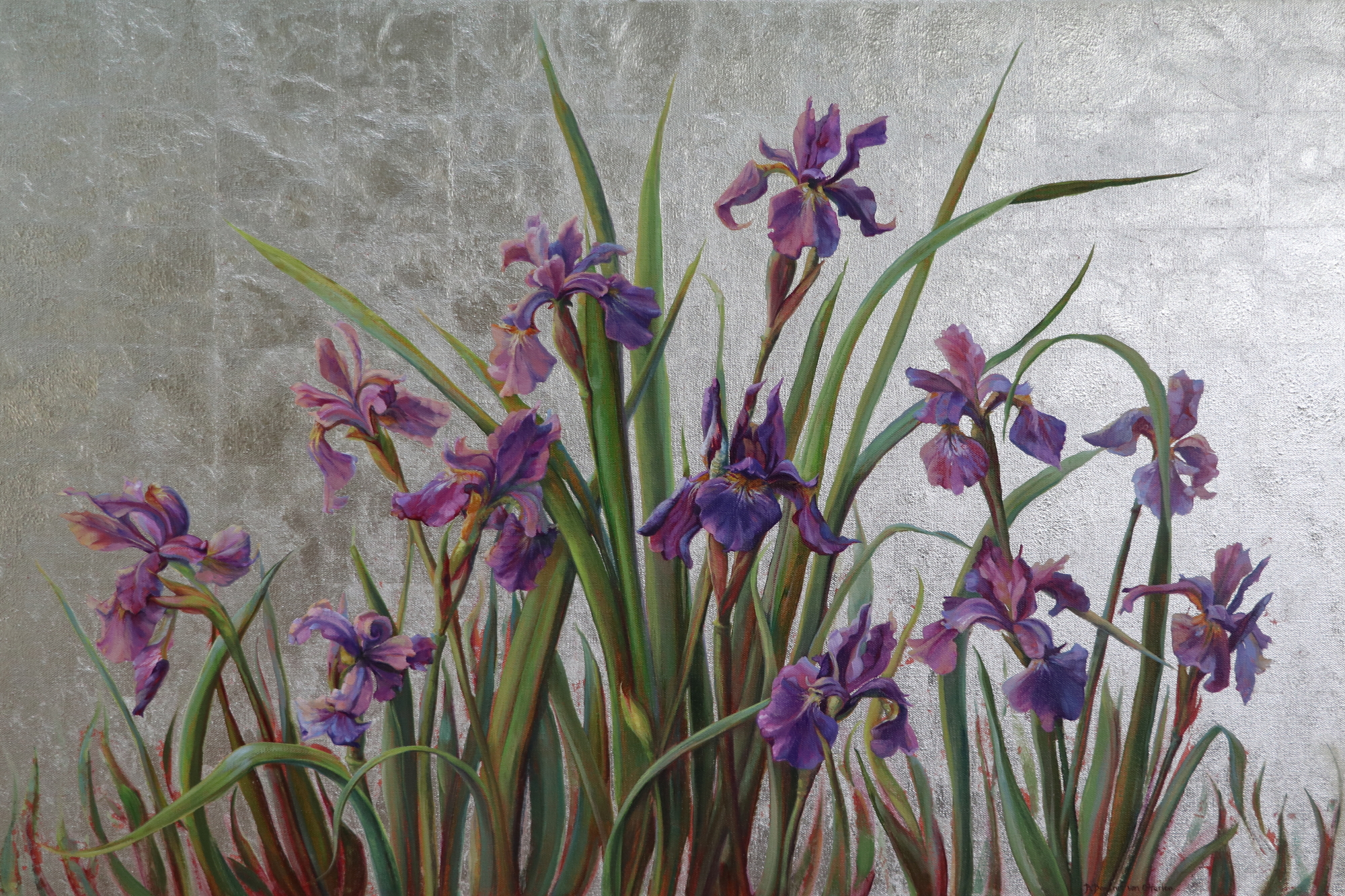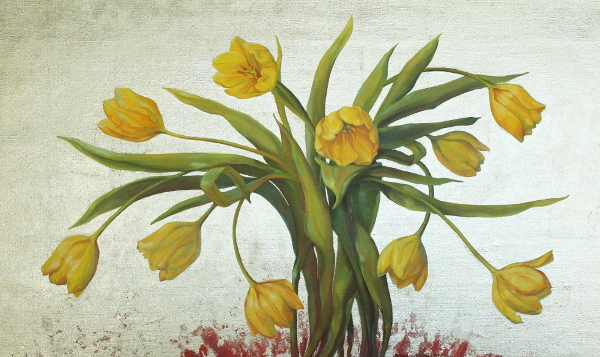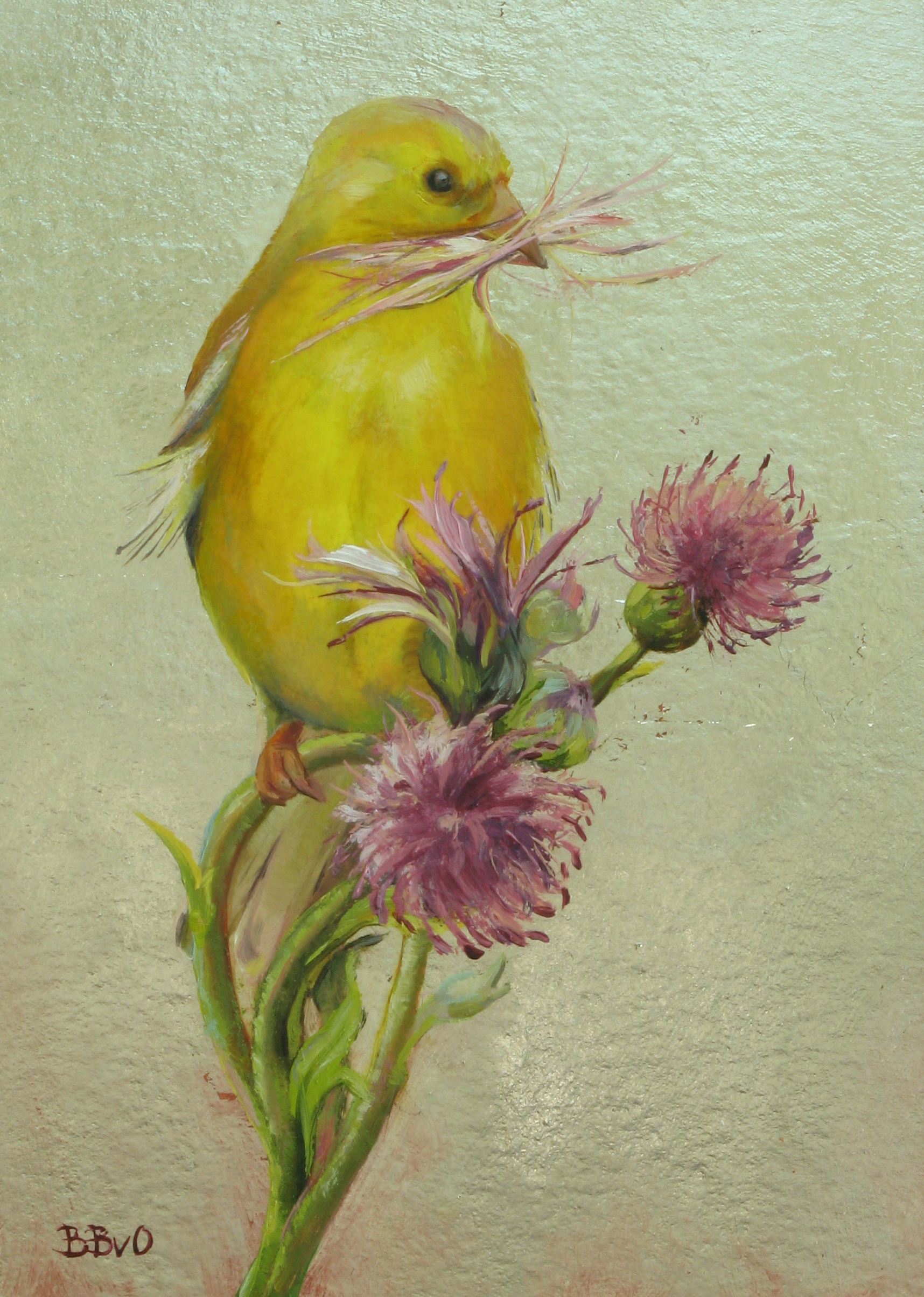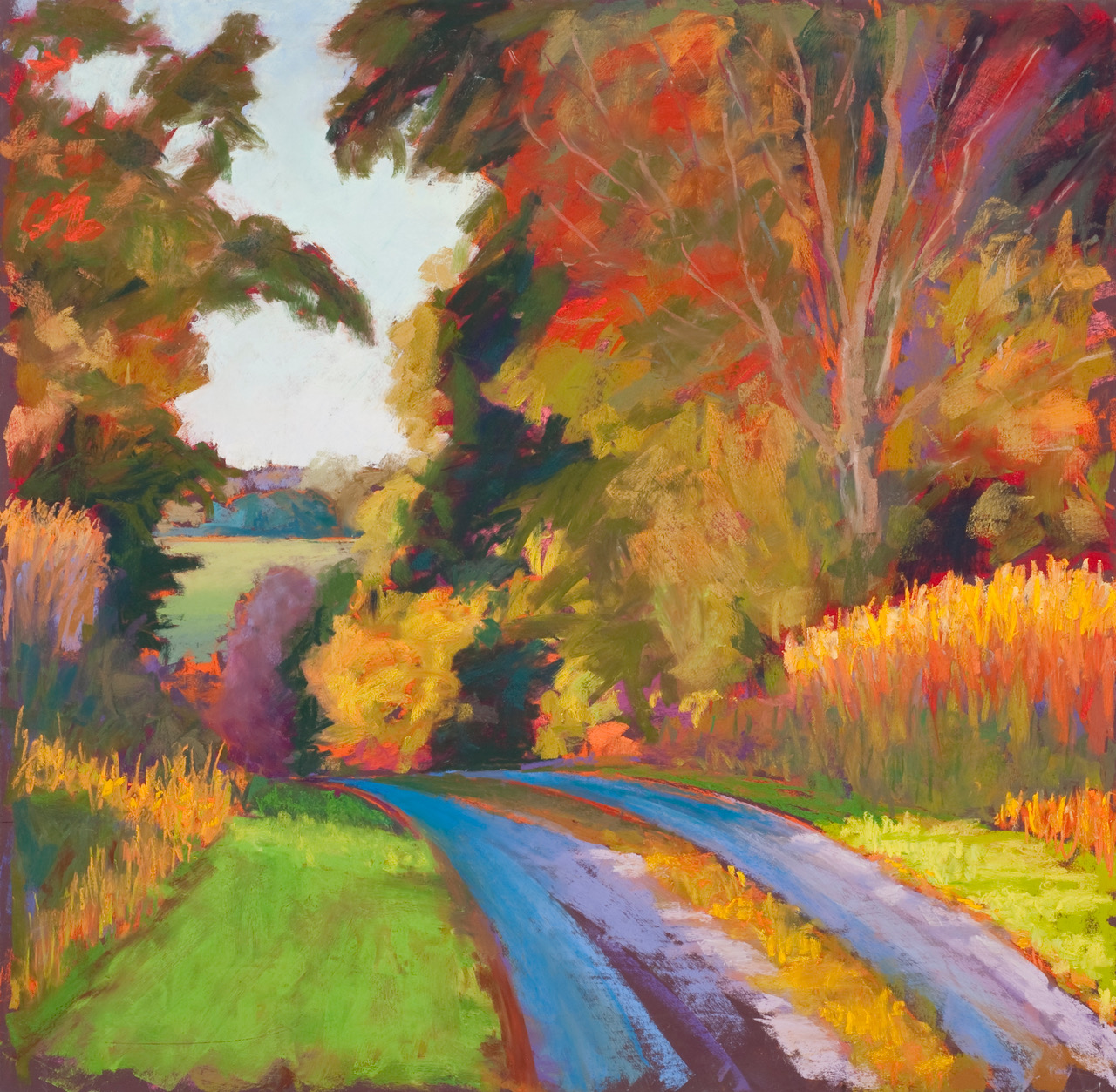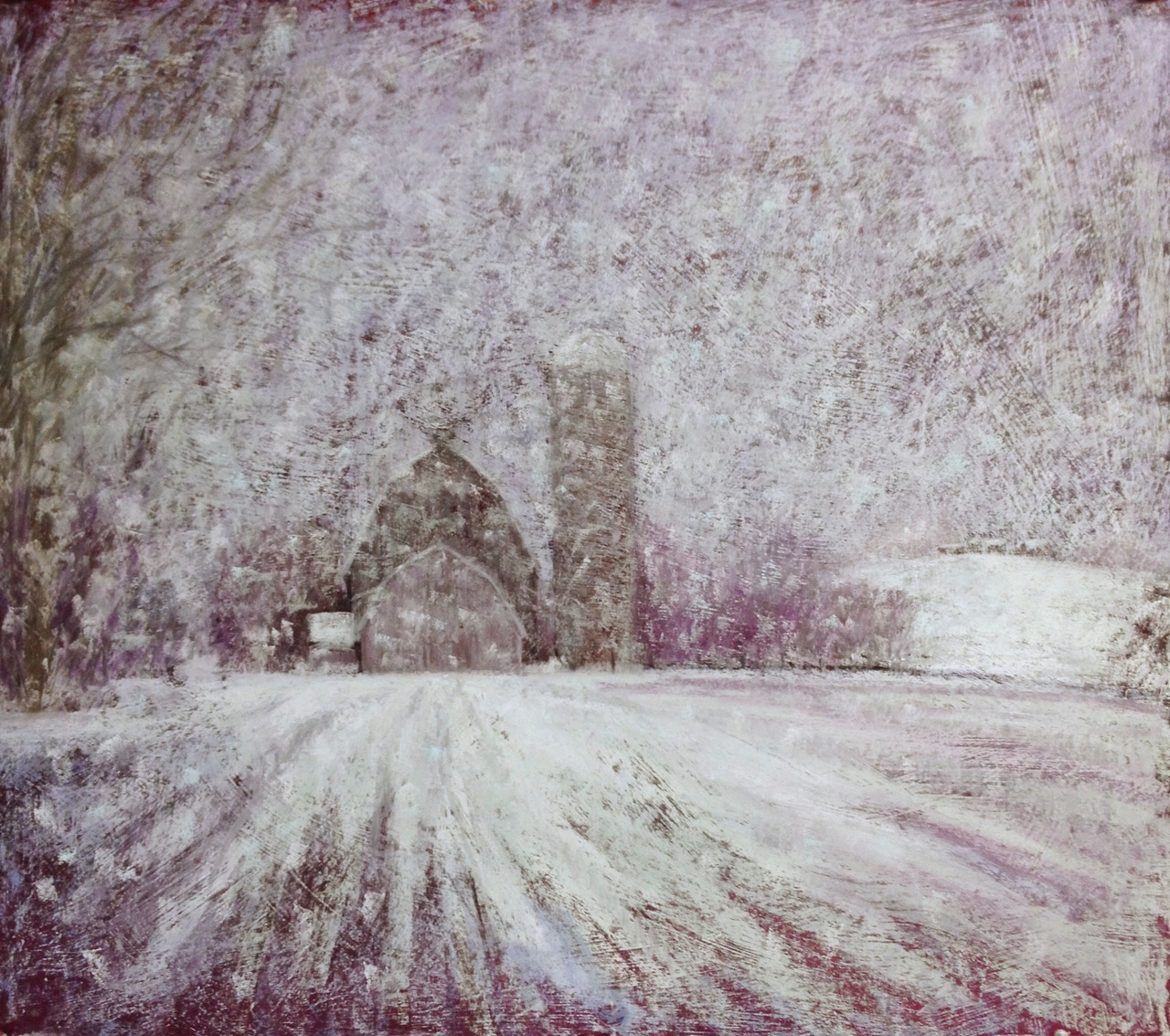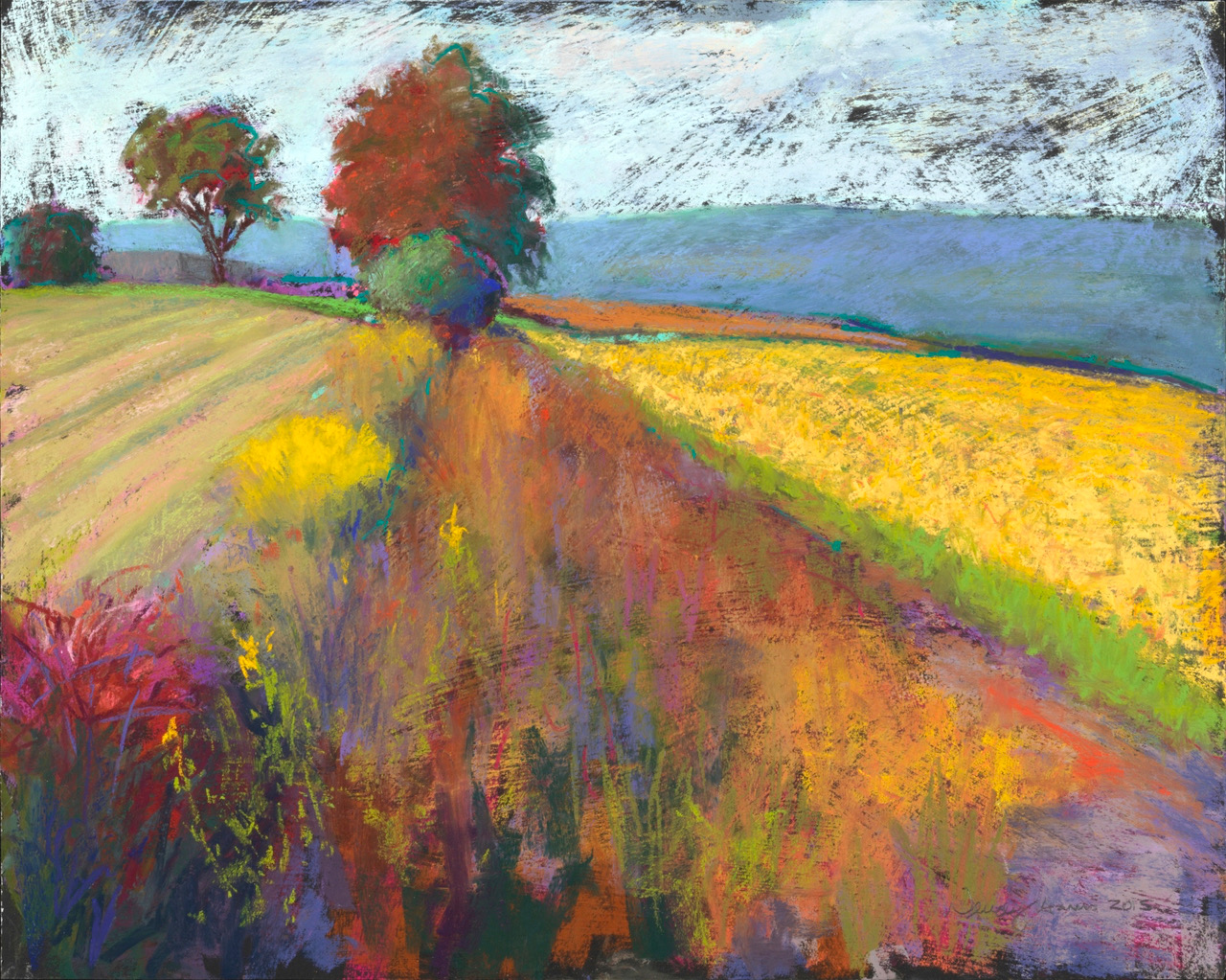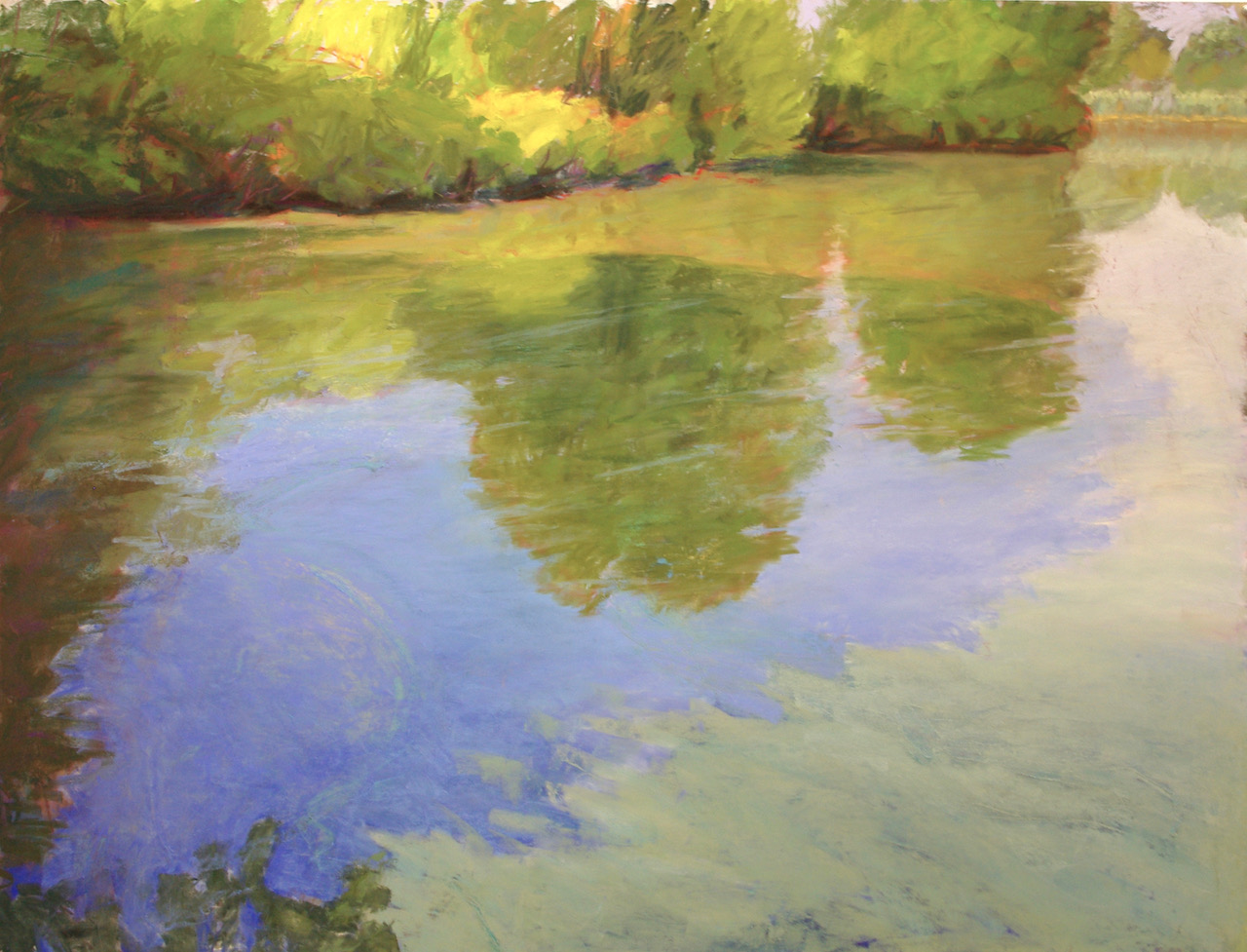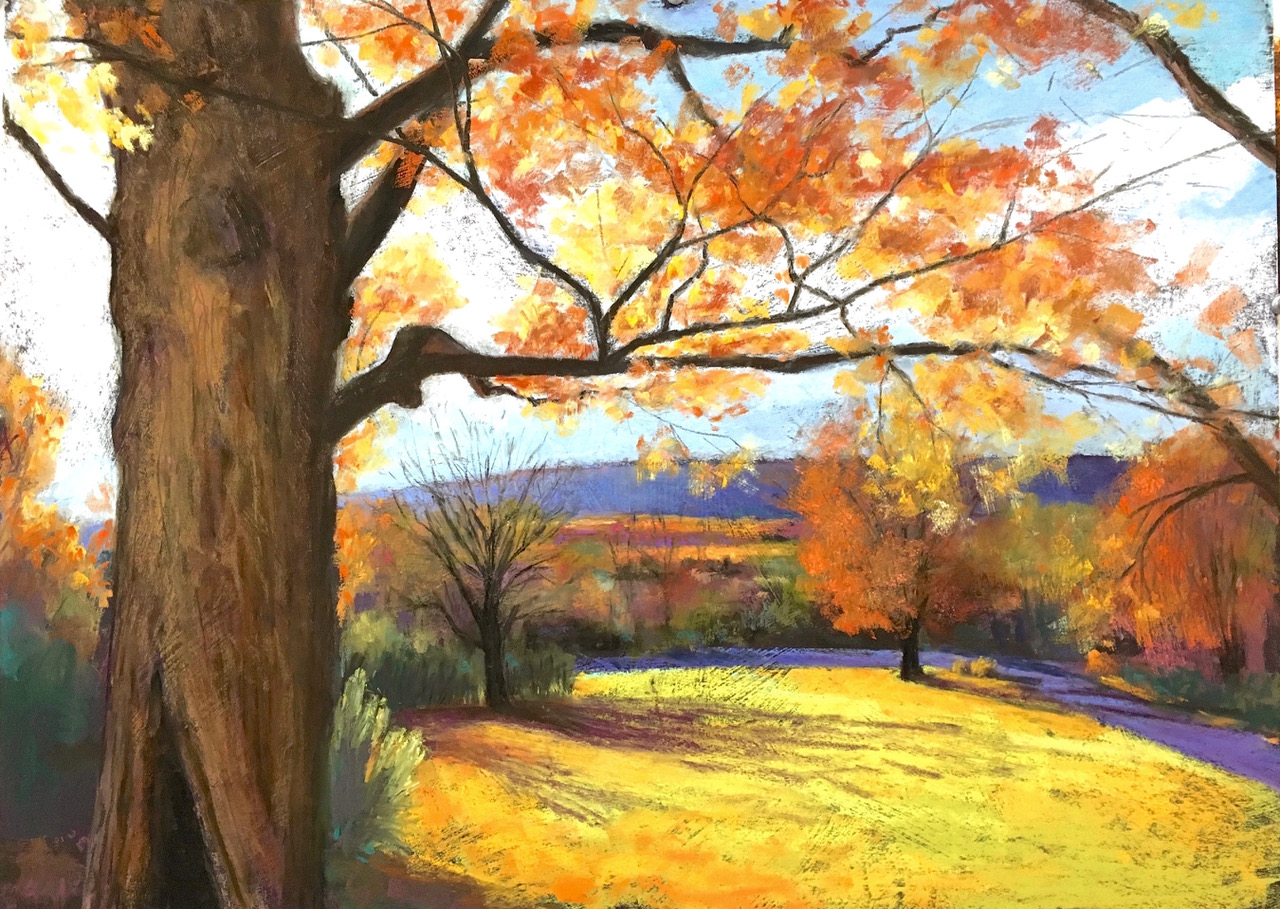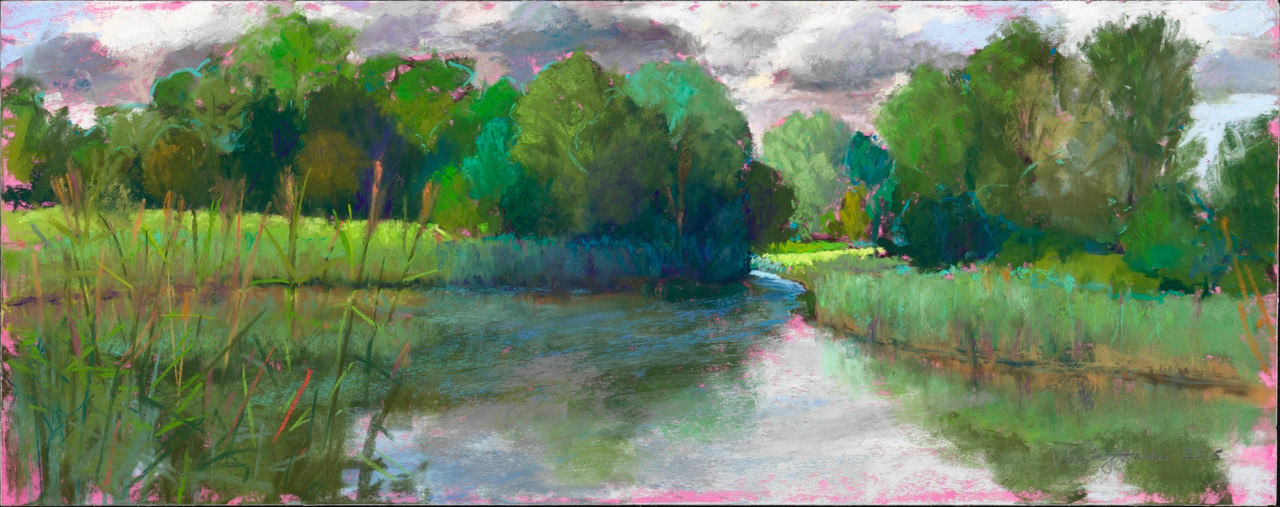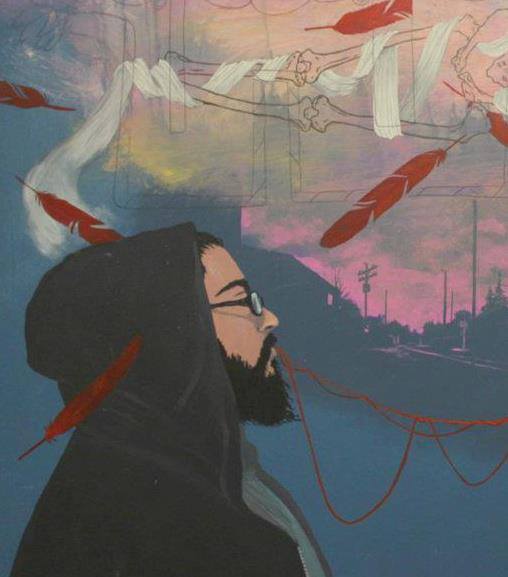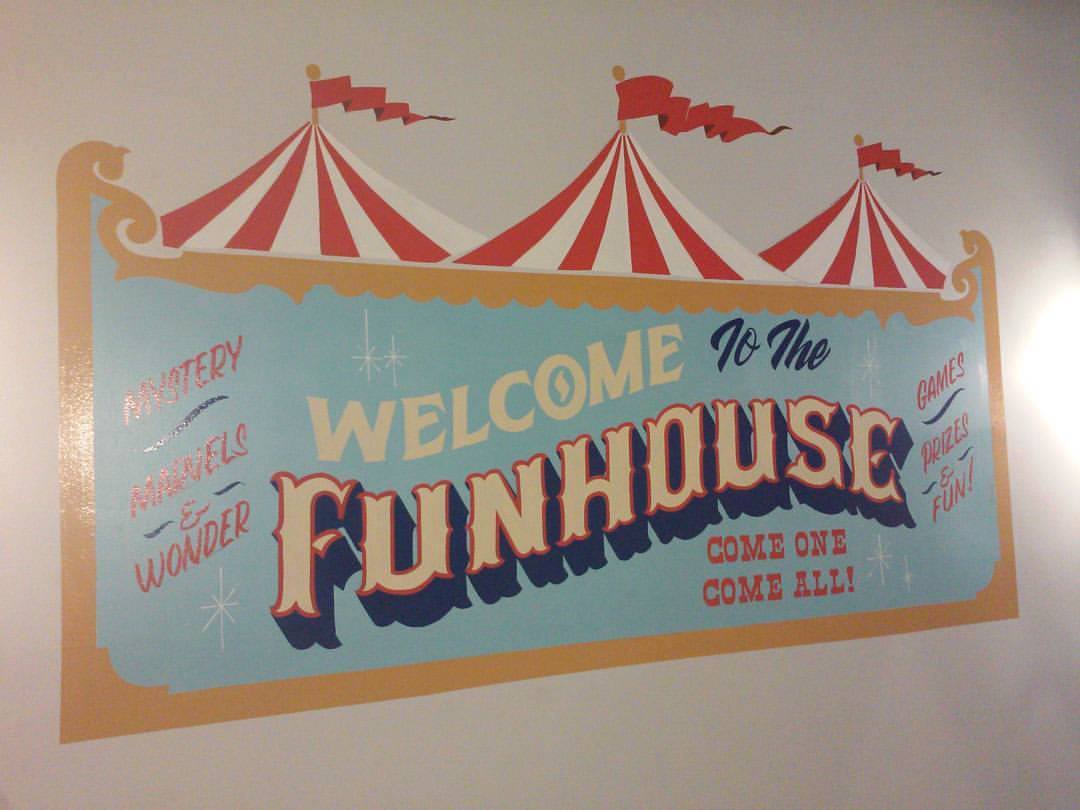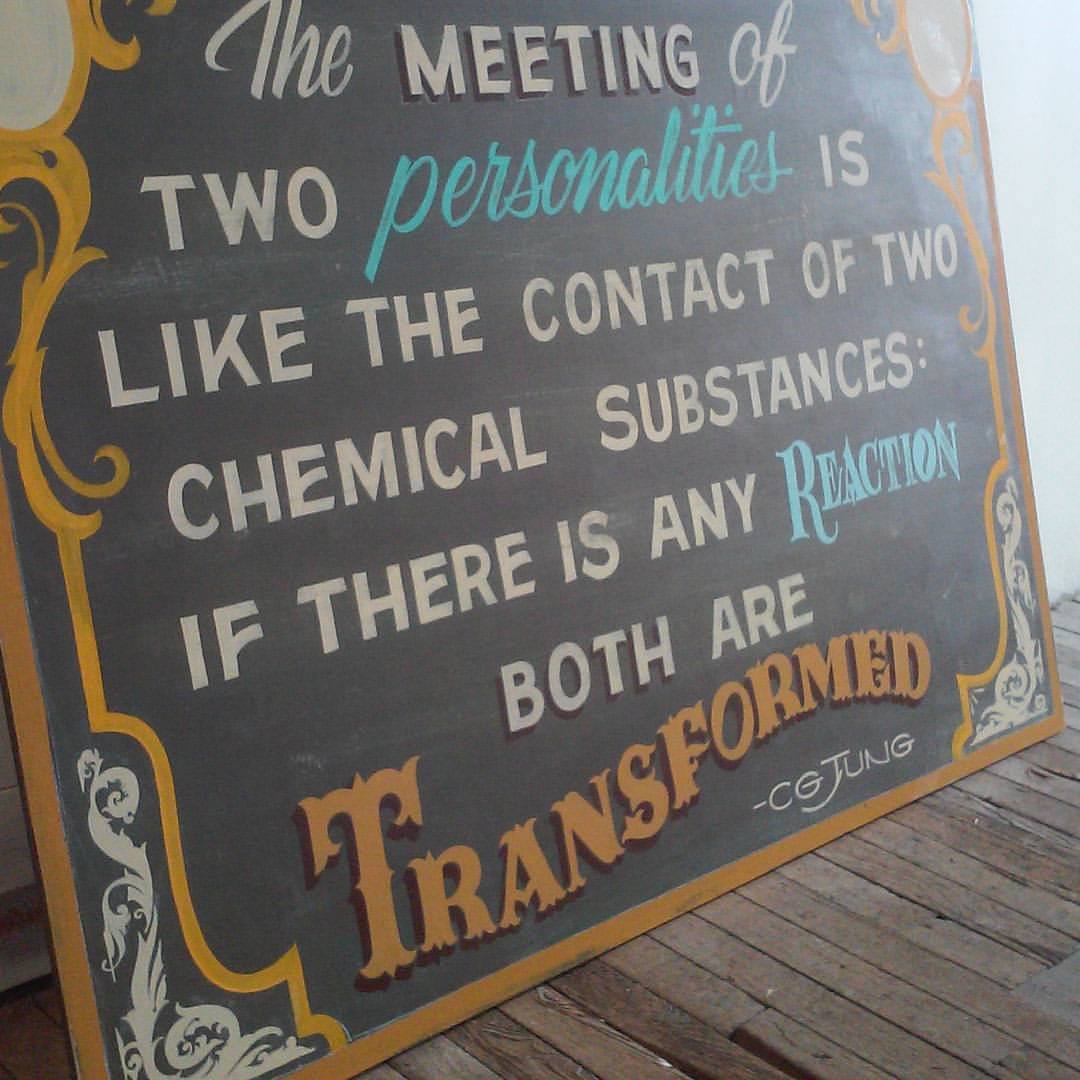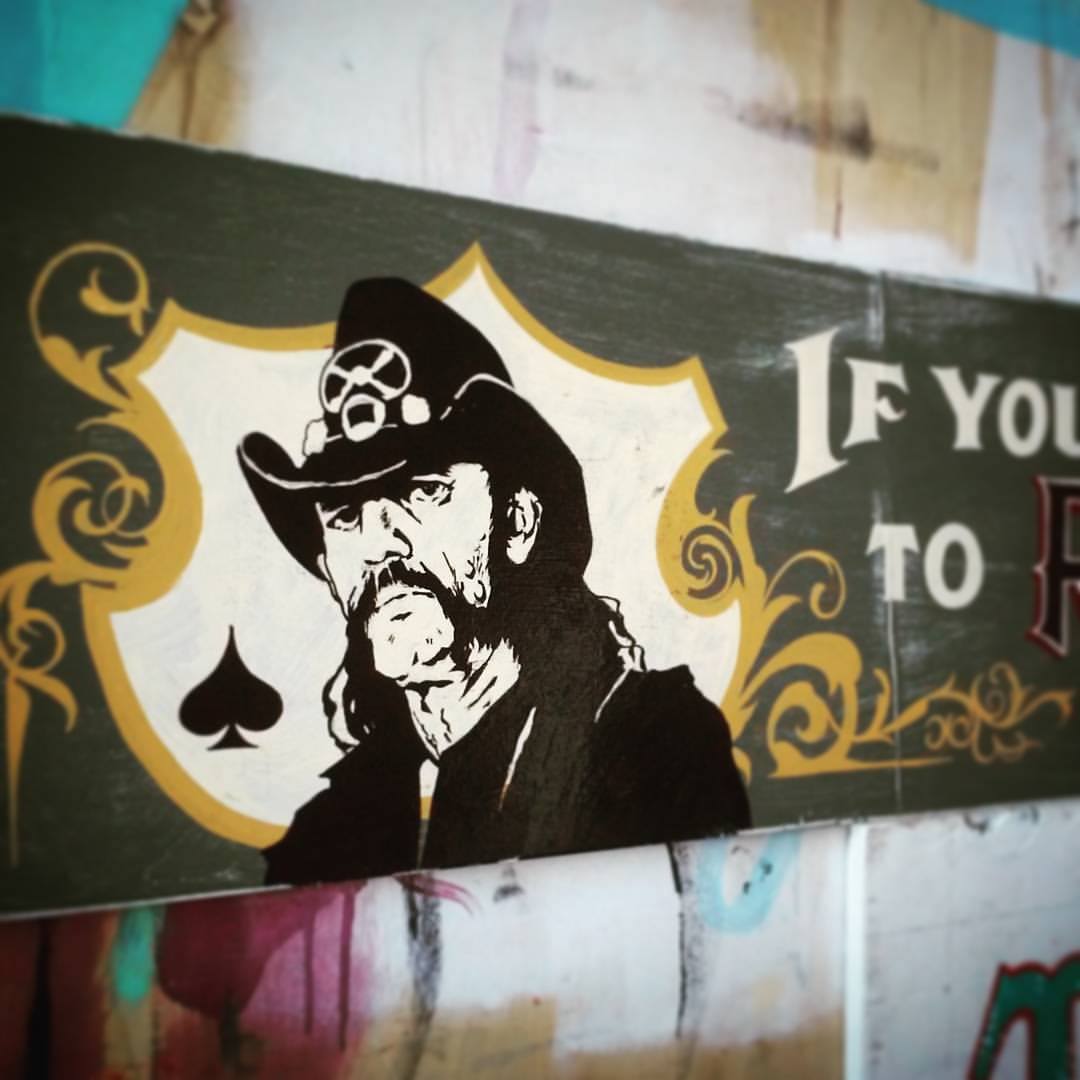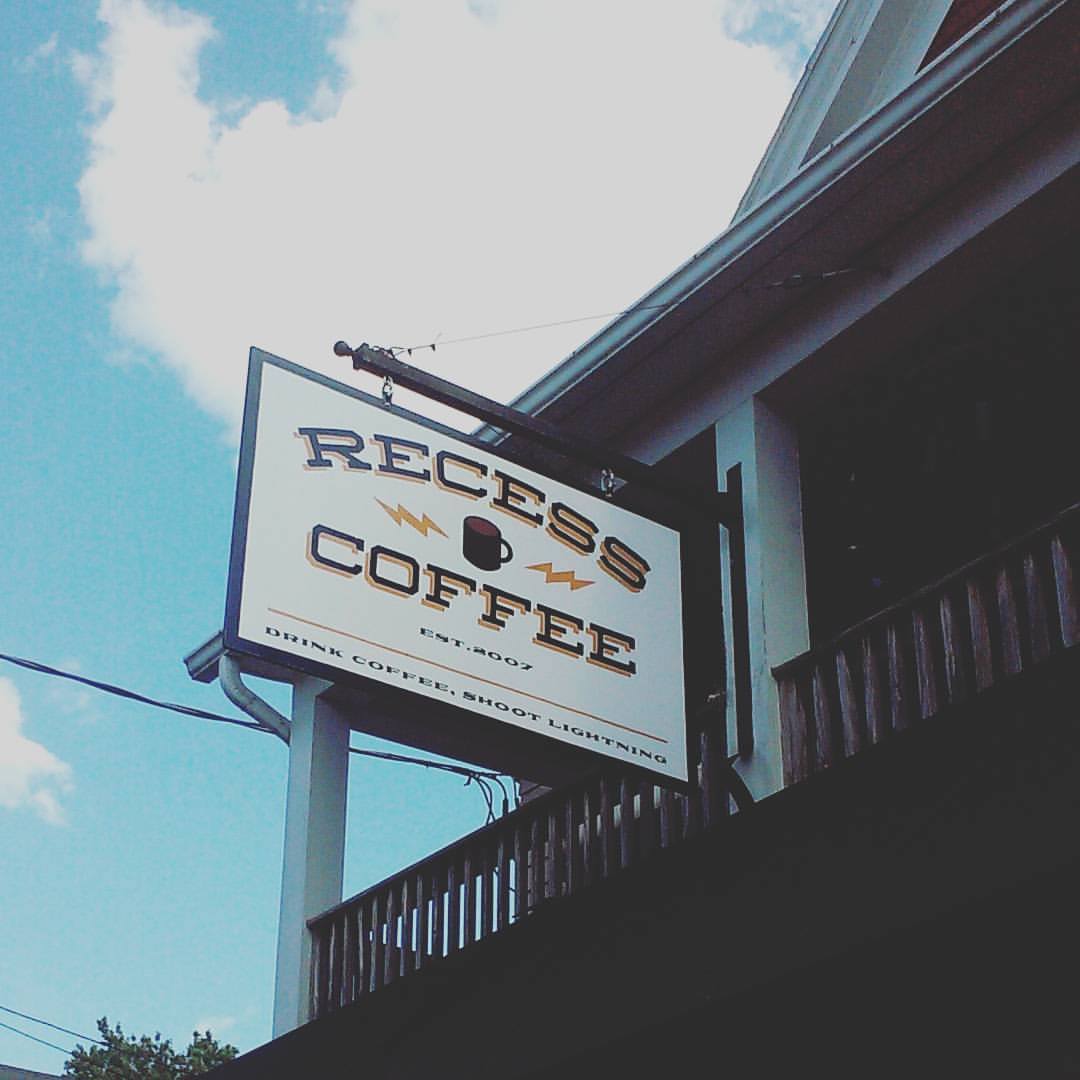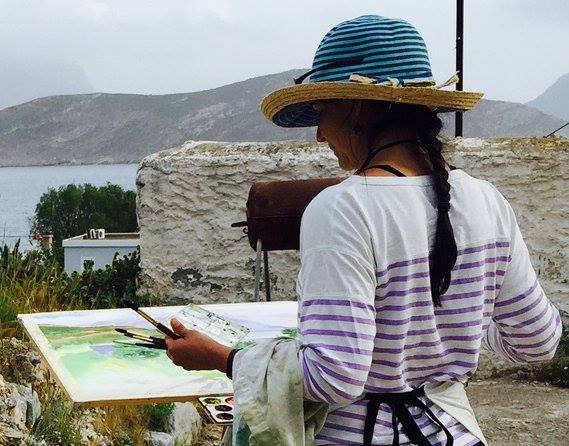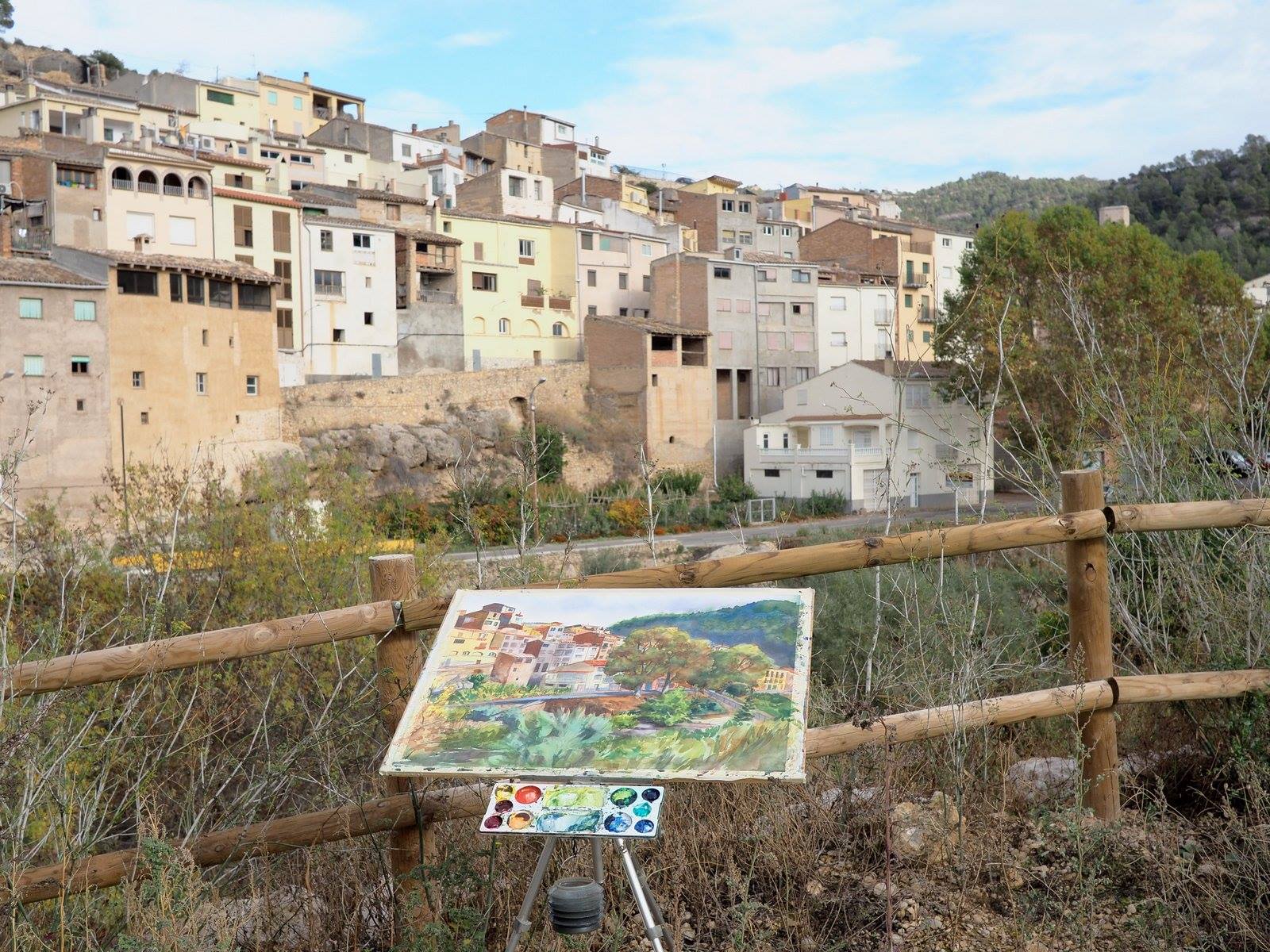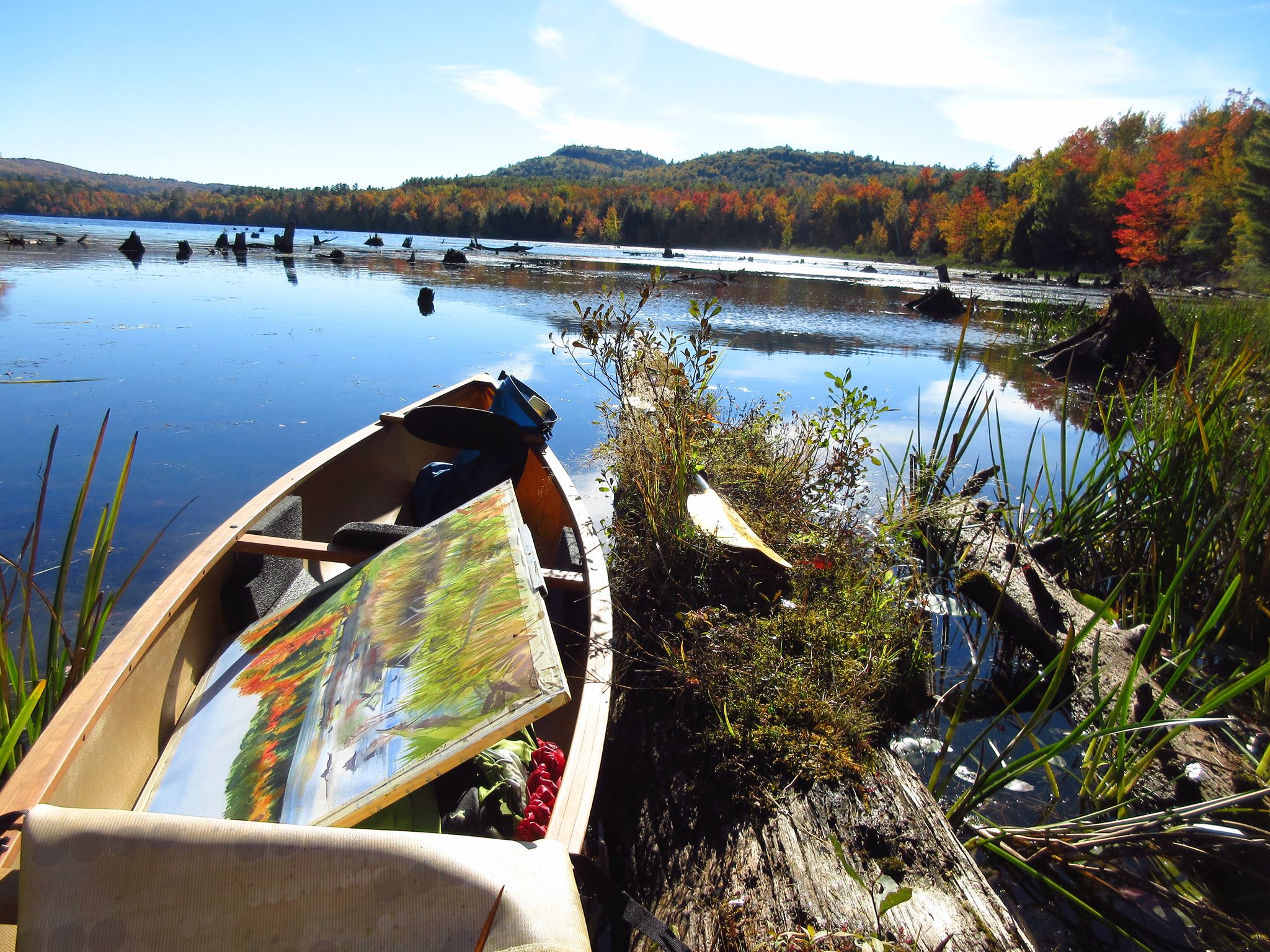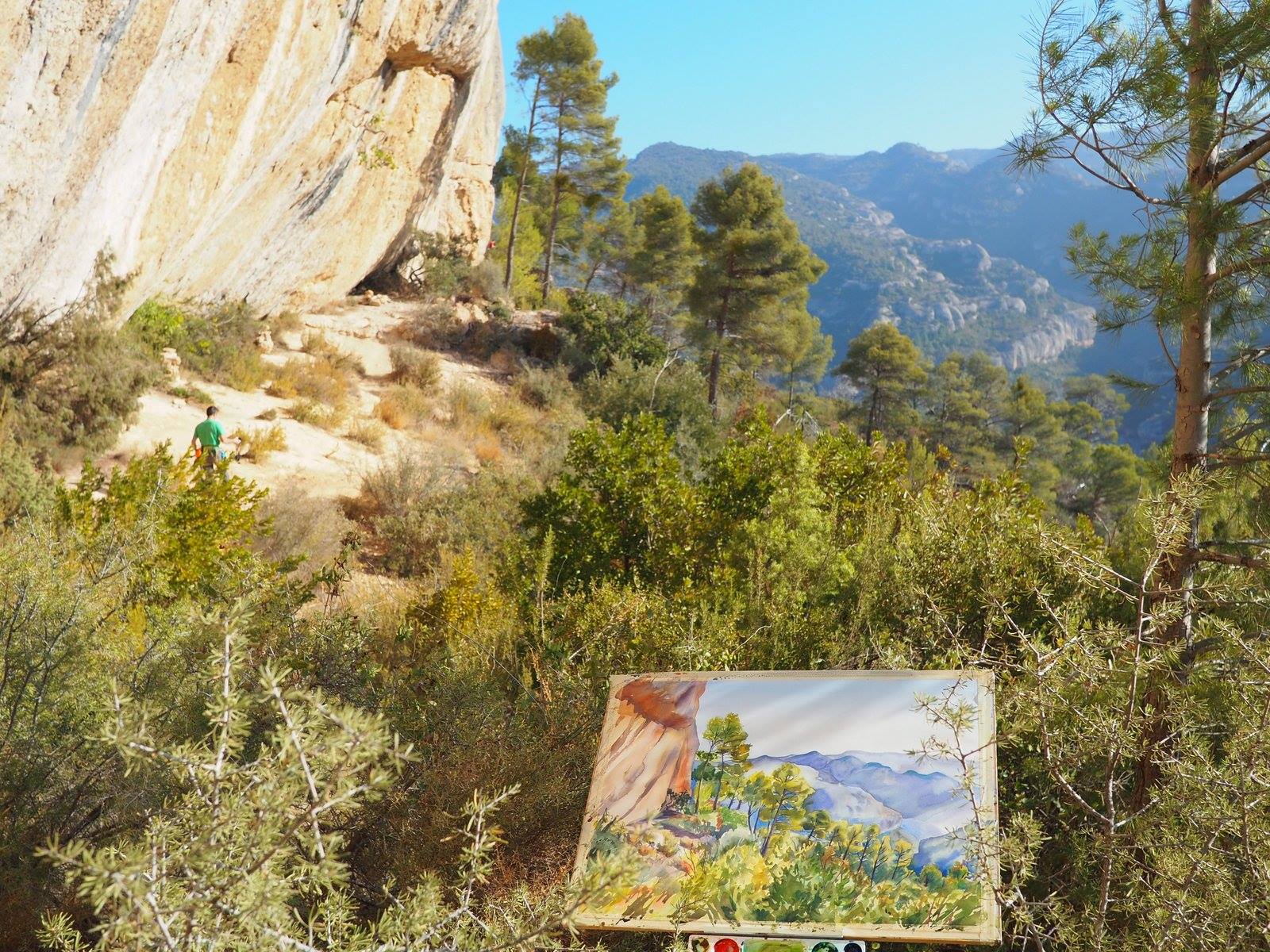10 Tips to Grow as a Visual Artist
When I was 22 years old, I decided to start a part-time business as a professional painter and my goal for that year was to create a painting’s series because I was told by an established artist, and by many art marketing books, it was the way to be represented by an art gallery. So, I did. I spent the whole year of 2010 creating my first body of work and that was the beginning of my creative venture. But how exactly do you grow as a visual artist? Here are 10 tips that have contributed to my growth as a two-dimensional visual artist.
Detail of Pink Flowers by Maria Rizzo
When I was 22 years old, I decided to start a part-time business as a professional painter and my goal for that year was to create a painting’s series as I was told by an established artist, and by many art marketing books, it was the way to be represented by an art gallery.
So, I did. I spent the whole year of 2010 creating my first body of work and that was the beginning of my creative venture.
Did I land into a commercial art gallery?
Not really.
What I wasn’t told then is that when you start out as an artist, your art is not that good; yet, it is CRUCIAL for you to start somewhere!
My 7 years’ younger self did the best she could do and, if I did let personal fears and other people’s negative opinions stop me then, I could not create the way I do today.
But how exactly do you grow as a visual artist?
Here are 10 tips that have contributed to my growth as a two-dimensional visual artist.
Study of Pears by Maria Rizzo
1) Just create. Don’t let perfectionism and fear stop you from even beginning your creative journey. Be kind to yourself as practice makes the master!
2) Learn the foundations. For any art discipline, to become good at it, you first need to learn the basics. Picasso once said “Learn the rules like a pro, so you can break them like an artist.” For visual artists learning to draw, color theory, and color mixing are crucial for their own long-term artistic success.
3) Learn to attentively observe. Keeping an art journal and sketching what catches your attention is a great way to further develop your eye/hand coordination and technique. A lot of famous artists, along with their sketches, wrote down notes about the colors and other details they observed while drawing their subject matter. This habit allowed these artists to recreate a more developed painting back in their studio, without missing out the important details they experienced while sketching from life. There is nothing wrong in taking a photo as a reference; yet, the point is not to just copy a photo but to put your feelings and experience into your final piece!
Painting tools with a flower field study in oil by Maria Rizzo.
4) Master your tools. In my experience, learning all I could about my art materials and tools was crucial for creating faster. Observing how other professional artists work is truly educational and illuminating. There are many art video tutorials that you can check for free online or think about investing into a local art class by an artist whose work you admire.
5) Go to art museums. My favorite teacher-artist became an exceptional painter by reproducing the art painted by the masters. Thus, reproducing other famous artists’ artwork is a great way to learn about composition, use of color and technique.
6) Stick with one medium. Chose a medium of your liking and master it. Once you are great at it, invest your time into another medium and master that one, as well. Don’t stop there, take the time to use new materials so that in the future you can experiment and find your voice.
Detail of Moody Trees III, oil on canvas by Maria Rizzo, 2017.
7) Take art classes. I’ve spent 5 years mastering acrylic painting until I decided to overcome my fear of oil painting by taking a class with an amazing local artist who paints like the old masters. Learning the basics and steps to create a successful painting from him gave me the confidence necessary to further grow as an artist.
8) Show your art and listen to people’s response. Since 2010, I have shown my art at local art guilds, online art groups, alternative spaces, non-profit galleries, art centers, and museums. Even though it’s always nice to hear positive feedback, what truly made me grow as an artist was receiving constructive criticism which ignited a personal desire to improve my technique, my composition and overall approach to painting.
Flower-field at Night, 8x10' oil on canvas by Maria Rizzo, 2017.
9) Listen to criticism with a grain of salt. Not all criticism is good. In the world, there are always rude people who love to share their misery with the rest of us. These people are not worth your time or energy; thus, do not listen to them, be the bigger person and move on.
10) Don’t compare yourself to other artists. There is nothing more depressing than comparing your art with the artwork made by others. What I’ve learned so far is that it’s way more constructive and realistic to compare my art to the art I created years ago.
Wow!
It’s amazing to visually see the growth I made as an artist through many years of hard work, curiosity, and perseverance. Furthermore, I look forward to see where this creative path will bring me 10 years from now, and yours!
Maria R.
The Artist's Path: 5 Fine Artists who Make a Living with Their Art
For this blog post, I've decided to highlight 5 professional fine artists, who make a living with their art, in order to inspire emerging artists that this career path, even though it's hard, is possible. These artists kindly shared with me who they are, what they do, and a piece of wisdom they learned along their creative journey.
For this blog post, I've decided to highlight 5 professional fine artists, who make a living with their art, in order to inspire emerging artists that this career path, even though it's hard, is possible. These artists kindly shared with me who they are, what they do, and a piece of wisdom they learned along their creative journey.
Bridget Bossart van Otterloo
“Time is your most valuable asset. Everyone gets the same amount of time in one day, it’s your choice to decide how you’re going to spend it. Make what’s important to you a priority.”
Q: Who are you and what do you do?
A: I'm a painter living in Corning NY, a small town with a great art community. I spend most days working in my home studio. I also teach part time in my studio and at 171 Cedar Arts Center here in Corning. https://www.171cedararts.org/classes/drawingpainting
My work is inspired by the beauty in nature.
Here is my Artist Statement:
My work is about the beauty in nature. I believe that this beauty enriches our existence, if we can only take a moment to pause our busy lives and take notice. Natural forms, elegant lines, bold colors, and the intrinsic details found in nature are the themes in my work. When painting, I represent nature accurately, but also with my own impression. I use the paint, oil or watercolor, in thin transparent layers. This layering technique creates a luminous glow throughout the piece, as light passes through and bounces off the different layers. With nature as my muse, I have yet to run out of inspiration. I hope my work serves to reconnect you with her beauty.
My work can be viewed at the West End Gallery and The ARTS Council of the Southern Finger Lakes on Market Street in Corning, NY. It can also be viewed at the Nan Miller Gallery in Rochester, NY
Q: How has your practice changed over time?
A: My work has always been inspired by nature. Over time I've broadened my subject matter to include landscapes and figurative work. I also enjoy working in ceramics from time to time.
Q: What work do you most enjoying doing?
A: My favorite part of the process is setting up a still life. It's at this point that the painting is full of potential and possibilities are endless.
Q: What’s the best piece of advice you’ve been given and learned in your art career?
A: Time is your most valuable asset. Everyone gets the same amount of time in one day, it's your choice to decide how you're going to spend it. Make what's important to you a priority.
Wendy Harris
“you never get worse by doing - just keep painting”
315-727-6577 www.wendyharrisfineart.com
Q: Who are you and what do you do?
A: I’m largely a landscape painter, both plein air and studio; pastel is my primary medium. I love the immediacy, vivid color, depth, and elasticity of soft pastels. And I’m just finishing up a 48 x 75” commission of a cityscape done in acrylic and oils. I’ve been graced to have been the singular 2D commissioned artist for Upstate Medical Center’s new Cancer Treatment Center which is entirely decorated with regional art along the theme “healing through nature.” I have eight additional paintings and prints in the exquisite facility. I am happily getting a reputation for being the go-to artist for healing environments. What an incredible privilege.
Q: How and where do you work?
A: My studio is in Syracuse's Delavan Center, the largest collection of artists under one roof between Rochester and Albany. I work, as well all do, in solitary pleasure. I am happy to get outside when the weather allows but nothing is as rich as the late summer and autumn months in Central New York State. Strangers invited me to visit and paint where they lived… France. I very much liked that too…! Where to next?!
Q: How has your practice changed over time?
A: This latest commission has forced me to be doggedly dedicated to daily painting for several months, a discipline I have long resisted but welcomed and learned from. My practice has changed over time. First, I have matured as an artist due to just age and doing. I have come into my own, finally being able to say “I can do this” and "this is who I was meant to be.” I now give private lessons and love it. I am working into the use of a brush and other mediums, eager to see where that takes me. I am getting looser and more daring in color, both are welcome but not always predictable.
Q: What work do you most enjoying doing?
A: I confess I love chasing clouds and the late afternoon golden hour. Those are two distinctly different activities and times of day as clouds so often disappear at sunset. Clouds require reference material in a studio as they are so ephemeral. I’m a proud member of the Cloud Appreciation Society. Golden hours are meant for plein air painting which is so satisfying - the conditions of the day return as a gestalt whenever I view the image. Maybe the moment you fell in love does that for you, but here it is repeated so many times with the many wonders of the natural world. I count myself very lucky.
Q: What’s the best piece of advice you’ve been given and learned in your art career?
A: “you never get worse by doing - just keep painting”
Cayetano Valenzuela
“[Every] one of us is equal in the fact that we are given 24 hours...in a day and we chose what we do with that 24 hours...Are we dedicated enough to make that time count? ”
Q: Who are you and what do you do?
A: My name is Cayetano Valenzuela and I am the owner of Black Rabbit Studio. Black Rabbit paints signs, does illustration and a little design work.
Q: How and where do you work?
A: I have a studio in the Delavan Building on West Fayette St. Syracuse. I also have a home studio and workshop. I cut and build at home and paint at the studio. I draw wherever.
Q: How has your practice changed over time?
A: Most definitely. Hand painted signs have been keeping my pretty busy these days. I had been doing more illustration and painting five years ago. I still do that but I have had to find a new balance in order to grow my business. I think I am still changing how my business works and what it works on. I am constantly trying to refine Black Rabbit Studio
Q: What work do you most enjoying doing?
A: Honestly I love to draw. I love to draw letters and I love to draw figures. I also love vintage ephemera whether it be old circus & movie poster or fading ghost signs. Searching for inspiration in old books or on the internet or in antique shops and finding great illustrations or examples of lettering is so much fun.
Q: What’s the best piece of advice you’ve been given and learned in your art career?
A: The best piece of advice came from my college professor Prof. Torlen. He said, We are not actually born equal, we are born under different circumstances and different economic and social barriers, We all have different skill levels and drivers. However, where we are in fact equal, every one of us is equal in the fact that we are given 24 hours. 24 hours in a day and we chose what we do with that 24 hours. We could go to the movies we could sleep we could go a hang out with friends and we can make art. Each one of us must chose what we do with those 24 hours. What we as artists must decide is this: Are we dedicated enough to make that time count? The dedication to have a life in the arts for me came from those words. It has continued to inspire me to this day. I can't and will not have a life where these hands don't make art everyday in one form or another. I know that is what I am made for. So I swing a brush for a living and I am happy to do just that.
Lucie Wellner
“Hillary Paige...taught me to use a small “view finder” made out of a piece of matboard and clear plastic, divided into quadrants. This helps see, select, and simplify...the scene. I never start a plein air painting without it.”
Q: Who are you and what do you do?
A: I am an artist and designer. My focus is primarily watercolors and I also do some freelance design. I paint watercolors outside as much as I can, and also paint in my studio at home in Pompey. Traveling always offers loads of inspiration because the landscapes and light quality are different from Central New York. The studio is great because I can control my environment and touch up hastily painted scenes, explore new techniques and mediums and incorporate photographic references. I try to stay away from copying photos, but occasionally they are very useful as a departure point, or for creating a painting that is less dreamy and more accurate. An example of this is this painting of a rose that I photographed at the E. M. Mills Rose Garden in Thornden Park.
Q: How has your practice changed over time?
A: I have tried to focus mostly on watercolors in order to get a handle on how to best use the medium, but I remain interested in drawing with pen and ink, block printing, and fantasize about learning about a million other art practices. I like to test out new techniques at Open Figure Drawing. The figure never disappoints as inspiration.
http://openfiguredrawing.com/
Q: What work do you most enjoying doing?
A: The work I enjoy doing the most is un-interrupted, hands-on activities that help turn down the volume of brain static. Painting outside, especially in a secluded area, satisfies this requirement perfectly.
Q: What’s the best piece of advice you’ve been given and learned in your art career?
A: If I have to cite just one piece of advice that I've received, it's the one from Hillary Paige. She taught me to use a small "view finder" made out of a piece of matboard and clear plastic, divided into quadrants. This helps see, select, and simplify (her words) the scene. I never start a plein air painting without it.
Linda Bigness
“Be your own critic and work everyday.”
Q: Who are you and what do you do?
A: I am a professional artist in residence at the Studio 245, Delavan Center, 509 W.Fayette St. Syracuse, NY Phone: 315-491-3346
Q: How and where do you work?
A: Studio 245
Artist Statement
I am an internationally exhibited artist who maintains a gallery/studio in Syracuse, New York. My work has been exhibited in several prestigious solo and group shows that have involved notable jurors such as art critic Clement Greenberg, Ivan Karp, director of OK Harris Gallery in NYC, and Tom Piche, director of the Daum Museum of Contemporary Art. In addition, my large scale paintings are often selected and commissioned for corporate and residential clients, including the Turning Stone Resort, Merrill Lynch Corporation, Haylor, Freyer and Coon, and Bausch and Lomb. I continue to exhibit professionally at several venues with artwork featured frequently at the Nan Miller Gallery in Rochester, NY.
Presently I am working on my latest book and exhibition about abstract art and the contemporary processes used by working artists today. Part of the research for this book is taken from the workshops I teach and my oil painting and mixed media collage experience. For over 30 years I have used my expertise to share with others the unique beauty and processes of my chosen medium through writing, teaching and professional exhibits.
My first book “Paint It, Tear It, Create It” offered the reader insight into visual abstract thinking through the process of collage into painting. I continue to explore the abstract through surface manipulation using encaustics and oil and I am currently working on a new series, the “Journey Stones Revisited,” that reflects my extensive travels through the United States and Europe.
Q: How has your practice changed over time?
A: See my web site for the professional growth and new work: www.bignessart.com
Q: What work do you most enjoying doing?
A: I am a painter who enjoys the discovery of media and its applications in all forms.
Q: What’s the best piece of advice you’ve been given and learned in your art career?
A: Be your own critic and work everyday.
I hope you enjoyed learning about these talented painters as much as I did and took a moment to read their advice on time management, daily art practice, a trick to successfully paint an plain air, and how you should be your own and only critic.
Maria Rizzo
The Artist’s Path: Getting Fragmented Hints from the Universe
At the young age of eight, after my teacher, a nun, who was also an amazing artist, scolded me by saying: “If only you could apply the same passion that you use for drawing into studying, you would be a phenomenal student!” A light bulb in my brain lit up. That day I knew exactly that I had to become a professional fine artist, and make that profession my living. So after promising myself that that was my destiny, it was ease to ignore all the nay say-ers telling me that I was going to end up as a starving artist. I knew my truth and I wouldn’t let anyone change my mind.
Do I believe we have a destiny written in the stars? Yes.
Do I believe that we can choose what path we want to follow? Also, Yes.
Let me explain myself, my name is Maria Rizzo, I am a fine artist from Italy who discovered a love for drawing at a young age due to the fact that it was the only thing that made me feel really good about myself because of my being “different.” Yes, I was special, but not in a good way as I had a lot of limitations: one was not being able to retain information and the other one was not being able to verbally communicate with other people until the age of five. “There,” I thought while drawing, “I have some potential here.”
My eight years old self in front of my parent's house in Carnate, Italy.
At the young age of eight, after my teacher, a nun, who was also an amazing artist, scolded me by saying: “If only you could apply the same passion that you use for drawing into studying, you would be a phenomenal student!” A light bulb in my brain lit up. That day I knew exactly that I had to become a professional fine artist, and make that profession my living. So after promising myself that that was my destiny, it was ease to ignore all the nay say-ers telling me that I was going to end up as a starving artist. I knew my truth and I wouldn’t let anyone change my mind. I am not going to lie, I was a lucky kid, I grew up in a loving family in the north of Italy, with a father who was a great provider and a mother who loved art and collecting art, and always supported my creative dream from day one. I attended the Liceo Artistico Sperimentale Preziossissimo Sangue in Monza, an artistic high school that taught me five years of art history, drawing, painting, sculpture, architecture and gave me the foundations to grow as a confident fine artist. In the summer of 2007, my mom made the tough decision to move her family back to her native city, East Syracuse, NY, to give her kids a better chance to find a good job after graduation.
In 2008, I met my husband while pursuing a BFA in Painting at SU and in 2009, I made the difficult decision to pause school to focus on my growing family. In 2010, I made another important decision: although a stay-at-home mom I chose to pursue my dream of becoming a professional fine artist. I read many books on how to make it happen, and started my own business. Between 2010 and 2016, I learned a few things about running a business as a visual artist: I created different series of paintings, I learned how to create thematic art shows, I figure out how to get into art competitions, I studied how to pitch to the press to create a wider awareness about my brand and, ultimately, how to sell my art to people. Not an easy task for a shy person like me, even though crucial for running a business!
2012 - Opening for Tree: Totems of Life at the Maxwell Memorial Library in Camillus, NY.
My take away from this experience is that an artist has to become a brave entrepreneur and build an authentic brand and a professional presence both offline and online. Also, artists have to be always on the look out for opportunities to reach out to their target audience; thus, specializing in a particular field and finding a niche are crucial to find financial stability. I personally still have a way to go!
In 2015, I was asked to teach my very first painting class at Homer Center of the Arts, and scared as I was, I did jump into this new opportunity and fell in love with teaching other adults the in and outs of creating a painting in acrylic. After that positive experience, I started thinking of pursuing a career as an art educator for adults, and more specifically my intention of becoming a painting and drawing professor in a college. In 2016, I made the important decision to finish my Bachelor degree in Visual Arts at SUNY Emprie State College, and I will graduate in the spring of 2017. This semester I am taking Art Criticism, and my professor suggested I started using my blog as a tool to participate in the conversations relating the local arts and the art world. This class will give me the opportunity to go back out in my art community and see what other contemporary artists are doing on a local level, but also to keep an eye into what’s happening in the art world at large. In my next blog post I will talk about two art openings in Syracuse, NY that I had the pleasure to experience, and how these art shows made me re-think about my path as a professional fine artist.
I truly believe that our destiny is out there, but it just takes an open mind to notice all the little hints the universe shows us to lead us to the path we truly want to follow.
MARIA RIZZO
Trees, Lands & Dreams | Art Blogger #theartistspath | Art Educator | From Italy 🇮🇹🇺🇸 |






